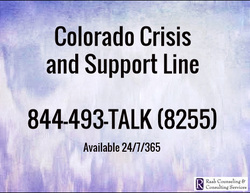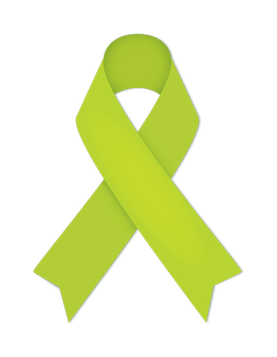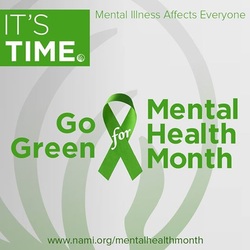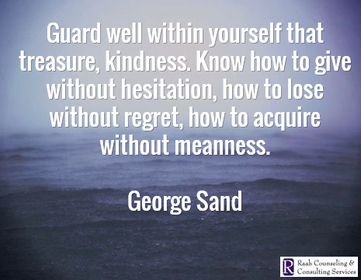My social work journey started when I was a leader for the middle school youth group at my church as a senior in high school. During my college years, I worked in a youth center in Chicago for one summer. Upon returning to school in South Dakota, I worked with teens and families in a residential treatment center and a domestic violence shelter. All of these experiences set the stage for my social work career. When I finished my graduate degree in Denver, I couldn’t wait to get a job working with teens and families! Since then, I have worked with teenagers in residential treatment, day treatment, outpatient counseling and inpatient hospital settings. By now, you have probably guessed that my blog will now focus on teenagers and families. I couldn’t be happier to write about adolescents after spending the last 15 years working with them! I will write about common issues related to teens and families. I will occasionally reference current research or events happening in the world as they relate to teens and families. My hope is that you will find my blog to be helpful and enjoyable to read. I would love to receive input on topics you would like to see on my blog. I appreciate comments and shares if an article resonates with you. Thanks for reading! Happy New Year! Bethany Raab is a Licensed Clinical Social Worker in Denver, Colorado.
She is passionate about helping teens and families be happy and healthy!  844-493-TALK (8255) 844-493-TALK (8255) On August 12, 2014, the Colorado Crisis and Support Line opened its doors. This new statewide crisis hotline is open to anyone in Colorado who needs emergency mental health assistance or is seeking extra support. All callers can expect to speak to a trained mental health professional. Phones are answered 24 hours a day, 365 days a year. The crisis line phone number is 844-493-TALK (8255) You do not need to live in Denver to use the hotline! It is available to EVERYONE in Colorado! The crisis line advocates can assist callers with a variety of personal and mental health emergencies. Here are a few reasons you might call the hotline:
Please, if you need immediate assistance with a life-or-death situation, call 911 or go to your nearest emergency room. The hotline is run by the Colorado Department of Human Services (CDHS) and Metro Crisis Services. Click here to read the CDHS press release on the opening of the crisis line. Bethany Raab is a Licensed Clinical Social Worker in Denver, Colorado.
This is one of my favorite quotes. I jotted it down almost 10 years ago and it has been hanging on my refrigerator on the same scrap of paper ever since. It is meant to be a reminder for me to express kindness toward others on a daily basis. Here are my musings about the quote and how I think it might apply to you! For Children and Teens What might schools be like if students exhibited these qualities toward their peers and teachers? How much more enjoyable could sports and playtime be for children? This concept is so important for children and teens to learn as they grow and develop. But how do children learn to express kindness? Please read on! For Parents Children learn how to exhibit kindness to others by the example modeled for them at home and in the community. The way you treat the store clerk, other drivers and your family will influence how your children interact with others. Please understand: I am not asking you or your child to be perfect. Everyone loses their temper and says things they do not mean. Use these times as a learning experience for yourself and a teaching moment for your child. Apologizing and exhibiting grace for others’ mistakes are wonderful behaviors to model for your children. For Anyone This concept is not only beneficial for families. I find that my own professional and personal interactions are better and more genuine when I try to be kind to others. My days tend to go smoother even if others do not extend kindness to me. Don’t get me wrong, try as I might, I fail miserably sometimes. The best thing we can all do on those days is to keep trying, and apologize when needed. What is one way you can work to show kindness to others this week? I’ll be working on this with you, especially when I am driving. Let’s do this together! Bethany Raab is a Licensed Clinical Social Worker in Denver, Colorado.
 A quick look at the trending topics on Google today looked something like this:
Honestly, my first thought after looking at this list was “Yay!” Two science fiction shows made the trending topics list!" My second thought was “Wow, this is completely focused on famous people and celebrity events. Where are the stories about normal people and regular, everyday life?” Soon I found myself pondering how easy it can be to lose ourselves in the flurry of media coverage about the glamorous and extravagant lives of celebrities – actors and athletes alike. How one can be satisfied living a “normal” or “average” life when the lifestyles of the rich and famous are constantly bombarding our online world? Here are some of my thoughts:
Give these a try. My bet is that your life will be so satisfying that you won’t have time to worry about the most recent celebrity news nor will you yearn as much for their extravagant lifestyle. You will have your own full and beautiful life! Bethany Raab is a Licensed Clinical Social Worker in Denver, Colorado.
As we move into June and away from Mental Health Awareness Month, I would like to thank you for reading my series on myths and facts about mental illness! Click below to read any posts you may have missed! Click here to read Part 1 Click here to read Part 2 Click here to read Part 3 It is important for everyone to know that mental illness is non-discriminatory. It affects people of all ages, backgrounds and socioeconomic statuses. If you have not ever experienced a mental illness, it is possible that you may at some point in your life. There are many strategies a person can use to help manage mental illness outside of therapy and medication. A number of these strategies are geared toward living a generally healthy lifestyle. They also offer benefits for a variety of mental health problems. Here are a few ideas for good self-care that can benefit people with and without mental illness: Exercise. This is one of the best ways to manage stress in addition to any kind of mental illness. Plus, it is good for your body! Get outside and walk, run or bike. Go to the gym. Take a yoga class. Try kickboxing or Zumba. Find something you like and go for it! Meditation. The research is piling up: meditation is good for us. It can help manage depression, anxiety and other mental health problems. It can also help us deal with stress, anger and the busyness of life in a healthy way. Even 5 minutes a day helps. Here is a link to a basic meditation for you to try today! Sleep. Getting enough sleep is important for us all, regardless of age. Some people do well with 7 hours, while others require closer to 10 hours of sleep to be healthy. Listen to your body and get enough sleep. If you are having difficulty sleeping, try #1 and #2 and talk to your doctor if the problem persists. Connect with others. Spend time with people you trust. Being with trusted family members and friends can be very comforting. Build these relationships and learn to be vulnerable with your most trusted inner circle. These relationships can be instrumental in helping you deal with mental illness. Disconnect. Choose to unplug from technology. Do I need to say more here? I think that says it all. While it may be uncomfortable at first, turning off the phone/tv/video games/computer and doing something else can really give you a boost. Give it a try! Say no. It is healthy to say no sometimes. Are you too tired to add another event to your calendar? Say no or "maybe next time". Does someone in your environment leave you feeling drained or feeling bad about yourself? Set some boundaries around the amount of time you spend with that person. Check back soon for more blog posts about setting boundaries and saying no. Reconnect. No, not to your devices, with nature! Go for a hike, enjoy a picnic or attend an outdoor event. What can you do to get started on your own self-care plan today? Bethany Raab is a Licensed Clinical Social Worker in Denver, Colorado.
Welcome back to my blog series in honor of May being designated Mental Health Awareness Month. If you haven't already, you can click below to read parts one and two. Please read and share with your network to help spread awareness about mental illness and mental health care! Mental Health Awareness Month: Myths and Facts, Part 1 Mental Health Awareness Month: Myths and Facts, Part 2 Myth #4: Mental health treatment does not work. Fact: Mental health treatment does work and it can help you! Research is being done around the world on various types of therapy. This research is important, especially because it has given us what are called “evidenced base models” of therapy. What this means is that valid, scientific research proves that certain kinds of therapy do work! Several models used by therapists around the United States are evidenced based and widely used. These include but are not limited to: Acceptance and Commitment Therapy (ACT), Cognitive Behavioral Therapy (CBT), Dialectical Behavior Therapy (DBT), and Eye Movement Desensitization and Reprocessing (EMDR). Do not hesitate to ask a potential therapist about what models of therapy they use in their practice and whether or not it is evidenced based. You can click on any of the models listed above to learn more. Click here to view a guide about evidenced based models. Of course, it is possible for you to see a great therapist who does evidenced based work and not see much benefit. The key to therapy being helpful is not only having a skilled and trusted therapist but YOU! I once heard this in a training presented by my colleague Brenda Bomgardner: There are 168 hours in a week. If you spend 1 of those hours in therapy and the other 167 hours ignoring or forgetting what you learned, therapy may not be very effective. Therapy can be hard. Therapy asks a lot of the client, but it is worth it! Myth #5: If I go to therapy, I will have to take medication. Fact: Many mental health problems can be successfully treated with only therapy. Some mental illnesses are best treated with a combination of medication AND therapy. It is important to note that most therapists cannot prescribe medication, as most of us do not have medical training. Therapists who are trained as social workers, counselors, or psychologists are not allowed to give medical advice as it is out of our area of expertise. If you begin therapy, a counselor or therapist might recommend you see a doctor to consider medication. If this happens and you choose to follow the recommendation, you will need to schedule an appointment with a medical doctor. Some general practitioners may be willing to prescribe medications for certain mental health reasons. You may also prefer or need to see a psychiatrist, depending on your individual situation. These professionals are medical doctors who are specifically trained to provide medication and, sometimes, therapy to care for mental illnesses. Your therapist and your doctor will work together with you to determine which path is best for you and your needs. Here is my next challenge to you: Do a quick online search of therapists in your area. See who is out there and take a look at the models of therapy they provide. Choose one to learn more about and take time to read at least one article. It is good to be informed! Check back tomorrow for a bonus post on self-care! Bethany Raab is a Licensed Clinical Social Worker in Denver, Colorado.
 Welcome to Part 2 of my blog series focused on common myths about mental illness! Click here to read Part 1. In honor of May being Mental Health Awareness Month, I am sharing my thoughts on some common myths about mental illness and mental health treatment. This is the second of a 4 part series for the month of May. My goal is to help you better understand mental illness and to share ideas on how to get help if necessary. Please share with anyone who might benefit from this information! Here we go! Myth #2: Mental health treatment is not available in my area. Fact: Mental health treatment is available. To be fair, I work in a metropolitan area that is saturated with mental health professionals. Here, as in other urban areas, one can easily find a large network of social workers, counselors and therapists. If you live in a smaller, more rural area, don’t assume you cannot get help! While you may have fewer options to choose from, help is available. Talk with your primary care physician, pediatrician, local hospital, nearby university/college or someone at your child’s school for guidance or referrals. You can also search online through therapist profile listings such as Psychology Today* or Good Therapy*. Additionally, some agencies and therapists in larger cities offer their services by phone or online video conferencing to serve people in more remote areas. Myth #3: Mental health treatment is too expensive. Fact: Mental health treatment can be affordable. Yes, seeing a therapist can be pricey, but consider what you could gain by spending some time with a trained professional whose priority is to help you through difficult, stressful times. Mental health treatment is an investment in your well-being and your future! However, if the full rates in your area are still more than you can afford, you have options. Often, private therapists accept insurance plans or offer a sliding scale. Many states and counties offer community mental health services that are reduced fee or covered by insurance. (Check out the Colorado Behavioral Health Council to learn more about community mental health services in Colorado.) Another option is to see if your employer offers a benefit known as Employee Assistance Services (EAP). Many people assume EAP services are used only if you are in trouble at work and required to seek counseling. This is only the beginning of what an EAP provides! Employees with EAP benefits can typically access between 2 and 10 free (yes, FREE!!) counseling sessions depending on the specific benefit package. These sessions may be used for any issue you or your family may be experiencing. EAP therapists can often continue seeing you for their typical fee (or maybe even a reduced rate) after your benefits are used. They can also help you find another provider if necessary. Here is another challenge for you: Do a search on your insurance company's website and see how many therapists are available in your area. Also, find out if your employer provides EAP benefits and what those benefits include. Why do this challenge? Consider it an opportunity to educate yourself on your own resources! Check back tomorrow for Part 3 of this series! * I am not sponsored by Psychology Today or Good Therapy and do not benefit in anyway by including these company names in my blog. Their inclusion is simply meant to be informative. Other therapist finder websites exist and can easily be found through a basic web search. Photo from Flickr. Creative Commons. Some rights reserved by FaxPilot. Bethany Raab is a Licensed Clinical Social Worker in Denver, Colorado.
 Did you know that 1 in 4 American adults experiences mental illness every year? Or that 20% of children ages 13 to 18 experience mental health problems in any given year? (National Alliance on Mental Illness) May has been designated “Mental Health Awareness Month” in order to bring awareness to mental illness in America. In my years as a social worker, I have heard many people speak about mental illness as something to be kept secret. Some people are ashamed that they are not well and hesitate to seek help as a result. In honor of Mental Health Awareness Month, I will be discussing 5 myths about mental illness and seeking mental health care. I will also include a bonus post about self-care. This is the first of a 4 part series to be posted throughout the remainder of May. My goal is to help you better understand mental illness and mental health treatment, as well as to offer some ideas on how to get help if necessary. Please share with anyone who might benefit from this information! Here are the topics I will cover over the next 10 days:
Let's get started. Myth #1: Mental illness means I am crazy and will always be crazy. Not so. Crazy is a word often applied with little concern or compassion for those experiencing mental illness. I do not believe having any sort of mental illness makes you "crazy." I believe it means you are facing a challenge that can be managed and often overcome with time, patience, hard work, support and professional help. My challenge to all of my readers is to watch your language. No, I'm not talking about swearing or anything along those lines. What I am asking is that you observe how often you use the word "crazy" to describe someone. Unfortunately, it has become socially acceptable to label someone behaving in an odd or out of control manner as being "crazy" rather than acknowledging they may be dealing with mental illness. Let's change this bad habit and practice acceptance instead. Learn more by reading the rest of the series! Mental Health Awareness Month: Myths and Facts, Part 2 Mental Health Awareness Month: Myths and Facts, Part 3 Mental Health Awareness Month: Bonus Post! Bethany Raab is a Licensed Clinical Social Worker in Denver, Colorado.
"Make each day your masterpiece." This quote by John Wooden is resonating with me today, bringing to mind the idea that every day is a piece of the bigger picture of your life. This has led me to ponder several questions: What does this idea mean for those days that are stressful, difficult or just downright bad? Do the bad periods take away from the overall picture or beauty of your life? How can you persevere through the hard days? See below for my thoughts! Everyone has tough days. For a teen, a big test, friendship problems or a relationship ending could lead to a bad day. For a parent, feeling stressed about work, worrying about their children or simply being tired may lead to a difficult day. Whatever the cause, bad days can seem overwhelming and can often be filled with strong emotions. So what can you do if you are having a bad day today? Here are a few ideas: 1) Remember that today will end. I know this sounds cliche, but it can be helpful to remember that the sun will set, even on the hardest of days. Tomorrow is a new day. 2) Remember that strong emotions will pass. Part of what makes humans unique among all other species is our ability to experience emotions. Strong feelings, including anger and sadness will pass. Rather than bottle these emotions up, find a healthy way to express them outwardly. Talk to a friend or parent, write, draw, run or sing it out. You will feel better in the long run if you do not ignore your emotions. 3) Remember to take care of yourself. If you are experiencing a stressful time, remember to prioritize your well-being. Does spending time with friends make you feel good? Make plans together. Does exercising help you feel calm? Go for a walk or make it a point to hit the gym. Does the idea of attending another activity make you feel exhausted? Politely decline the invitation. Does taking a bath or reading help you feel calm? You get the idea. The most important thing is to make time for YOU! 4) Remember to look for the good. Find something to be grateful for every day. Purposefully seeking out the positive can help counteract negative thoughts. Write things you are grateful for down in a journal so you can be reminded of them during difficult times. 5) Remember the big picture. Your life is an incredible and special piece of art. In the end, the mixture of good and difficult times will serve to make your story uniquely yours and more beautiful than you can imagine! Please, share your thoughts on this topic! What can you do today to make today a part of your masterpiece? Bethany Raab is a Licensed Clinical Social Worker in Denver, Colorado.
Every parent wants their daughter to feel good about herself. We live in a society that places increasing focus on women's bodies. It is important to be mindful about social pressures in your interactions with your daughter. Use positive language and help her feel confident! See below for 10 specific ways to help your daughter love her body! This post originally appeared on the Wasatch Family Therapy Blog.
|
Welcome!
Every blog post you see on this page is written especially for teens and their parents! Like it? Pin it!
Follow me!
Categories
All
|




 RSS Feed
RSS Feed